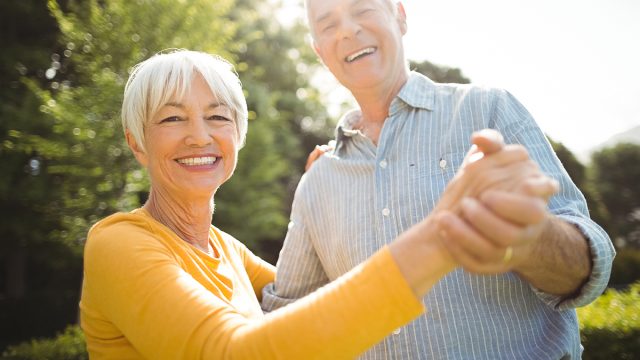
Seniors who live alone need to take special precautions to avoid serious injury. “Older adults are at higher risk for chronic health problems like diabetes, osteoporosis, and Alzheimer’s disease,” says the Office of Disease Prevention and Health Promotion. “In addition, 1 in 3 older adults fall each year, and falls are a leading cause of injury for this age group. Physical activity can help older adults prevent both chronic disease and fall-related injuries.” Here are 15 health hazards seniors should do their best to avoid.
1
Not Using a Cane/Walker If Needed
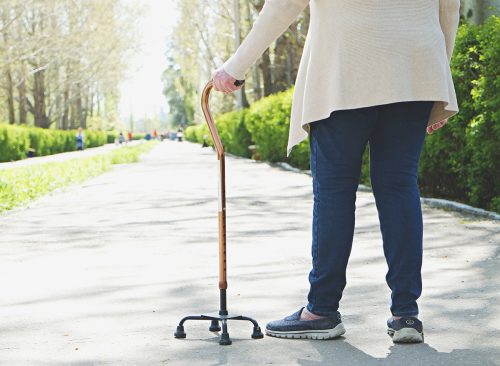
Tripping and falling is a leading cause of injury for seniors. If you need to use a cane or walker, use it all the time. Don’t try to balance yourself on the walls when walking around your home.
2
Cluttered Floors
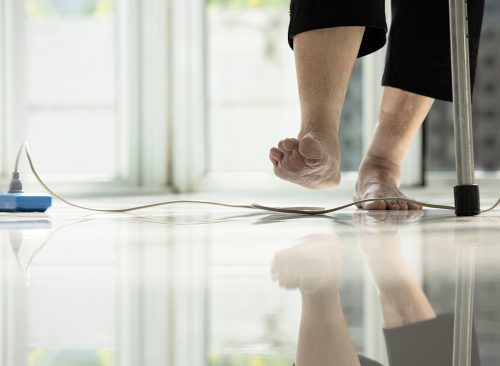
Leaving clutter all over the floors is a health hazard. You’re much more likely to trip and fall if there are boxes or other paraphernalia piled around. Get help tidying up if needed.
3
Dangerous Stairs
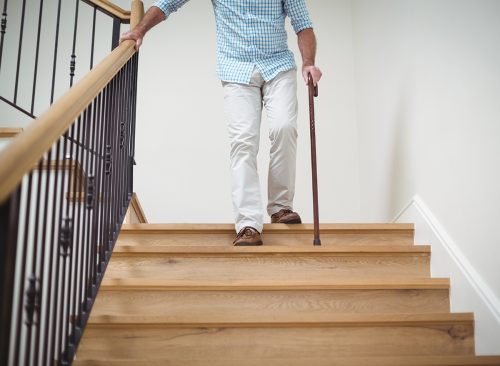
Seniors should consider living in homes with just one floor. With aging comes balance issues and gait problems, which can lead to injury from falls. Never leave slippery rugs at the foot of stairs.
4
Not Replacing Smoke Alarm Batteries
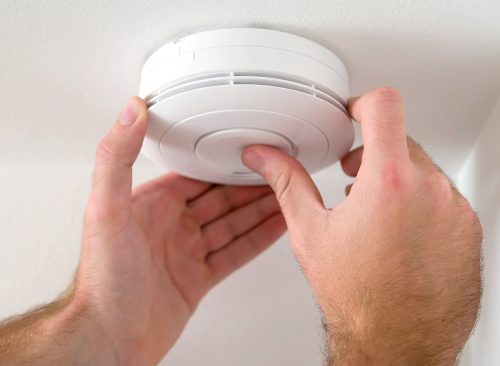
Ask for help if you can’t reach the smoke alarm or carbon monoxide batteries. Under no circumstances should seniors attempt to climb on chairs to replace them—it’s dangerous even for people who don’t have age-related balance issues. Always replace batteries when needed.
5
Staying on Top of Medications

It can be easy to forget what medication should be taken on what day. Ask your pharmacy to use large print on medication packaging. Use an organizer if needed.
6
Poor Lighting
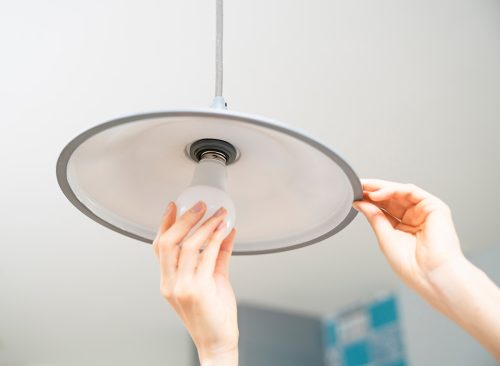
Make sure there are easily accessible lighting switches in every room in the house. Use nighlights if necessary. Replace light bulbs as soon as they burn out.
7
Toilet Safety
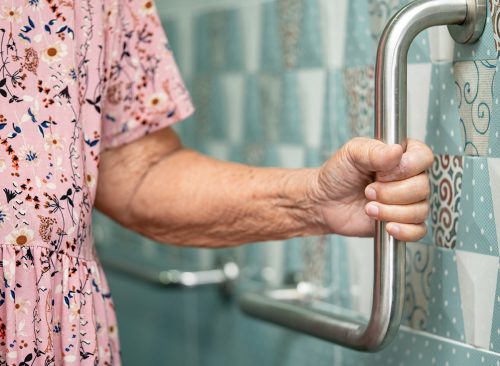
Make sure to install safety bars in the toilet to prevent falls and injury. Toilet seat extenders are also useful to prevent accidents. Because so many toilets are near baths, slippery floors can be dangerous.
8
Bathtub and Shower Safety
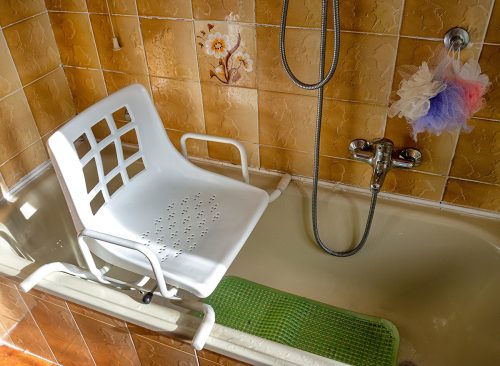
Install safety bars in the shower or bath tub to prevent slipping and falling. Use a specially designed bath/shower chair if possible. Use a handheld shower head for convenience and safety.
9
Fire Safety

Prevent fires from starting in the kitchen by getting help with cooking and meal preparation. Consider asking friends and family for assistance, or sign up for a food delivery program.
10
Emergency Numbers

Keep important numbers easily available in case of emergency. List numbers for friends and family, and your healthcare provider. Numbers such as Poison Control are useful too.
11
Not Wearing an Alarm
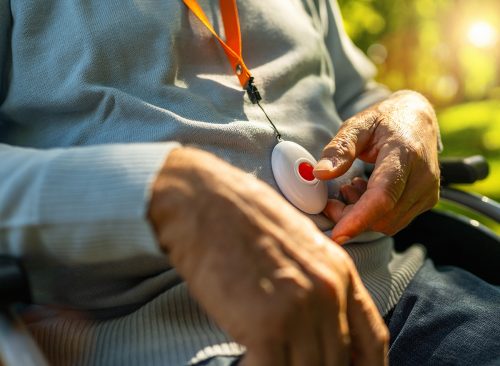
If you’re at serious risk of falling, or have injured yourself before, consider a special wearable alarm. If you’ve fallen or need help, you can press a button that will alert emergency services to the situation and get you help even if you can’t reach the home.
12
Scalding Water
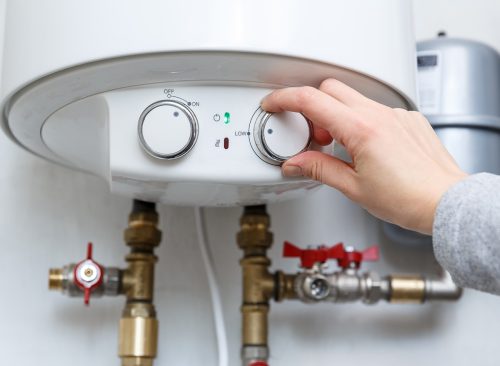
Scalding water can cause serious injuries. Set your water thermostat at under 120 F. Use rubber mats wherever there’s danger of water on the floor.
13
Mixing Cleaning Products
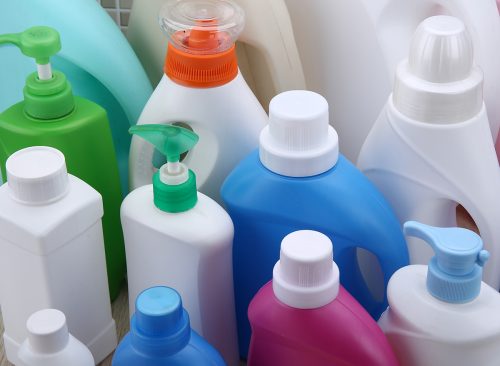
Ask for help when cleaning your home, and never mix up cleaning materials as they can create dangerous gasses. Stay away from bleach and ammonia if possible.
14
Home Security
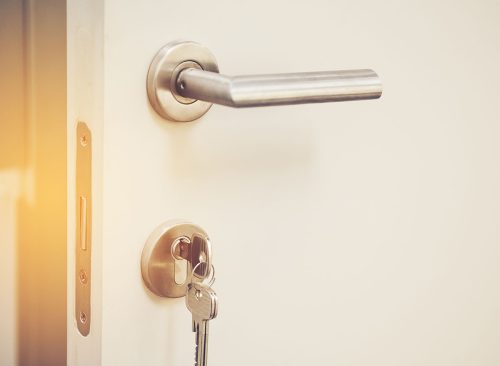
Keep windows and doors locked. Never let strangers into your home if you’re alone. Never give personal information to people you don’t know.
15
Isolation In the Home
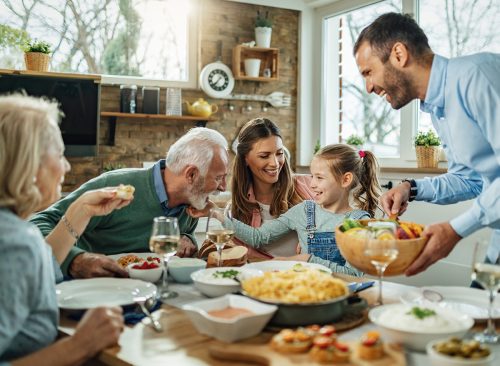
Reach out to friends and family and spend as much time with them as possible. “Older adults are at increased risk for loneliness and social isolation because they are more likely to face factors such as living alone, the loss of family or friends, chronic illness, and hearing loss,” says the CDC.














